The Latin American and Caribbean ambassadors and representatives gathered at Tsinghua University Art Museum on October 25 to attend a meeting entitled “2021 Prospering Together - Latin American and Caribbean Ambassadors Convene at Tsinghua.” Ambassadors, Charge d 'affaires, Minister Counsellors and other envoys from 21 Latin American and the Caribbean countries visited Tsinghua and shared their views on enhancing cooperation between China and Latin American and the Caribbean countries and prospering together.

“Although the Covid-19 has hit countries all over the world severely, China and Latin America have supported each other and overcome the difficulties together at this trying time, which shows our sincere friendship,” said President of Tsinghua University Qiu Yong, welcoming Latin American and Caribbean diplomats.
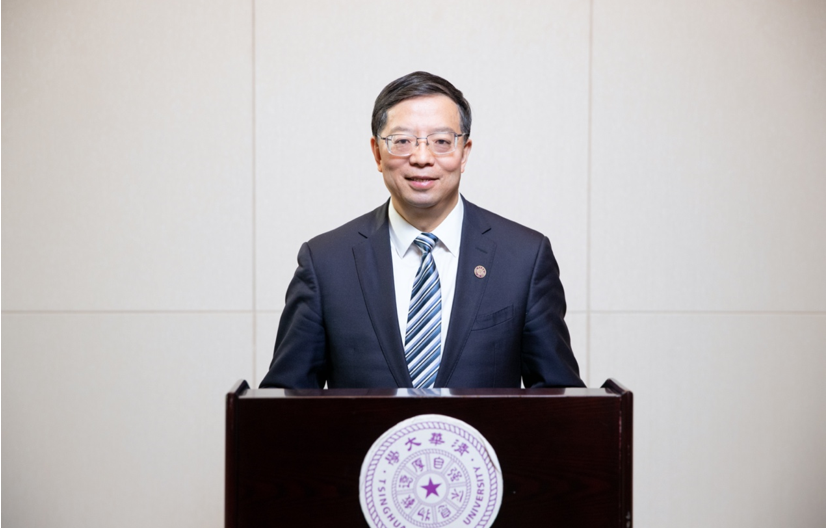
“The exchanges and cooperation between Tsinghua and LAC have achieved a new level of momentum in recent years. I hope that this Special Event will continue this momentum, elevate our shared expertise of promoting understanding and cooperation, and reflect our spirit of optimism for prospering together,” said Chairperson of the University Council Chen Xu, highlighting the significance of the event.
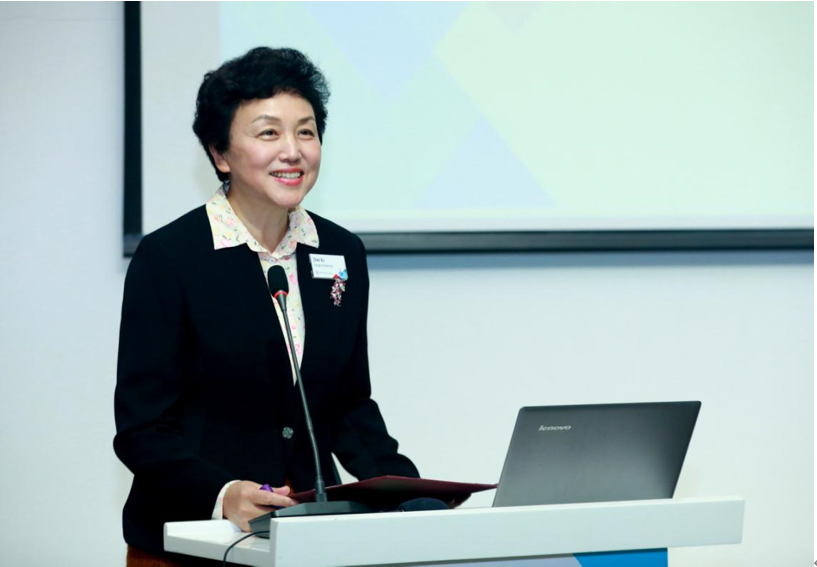
“The geographical distance between China and LAC countries is great. BUT today has demonstrated that our longstanding ties and motivation towards even greater levels of understanding and cooperation make us closer than ever before,” said Vice President and Provost of Tsinghua University Yang Bin.
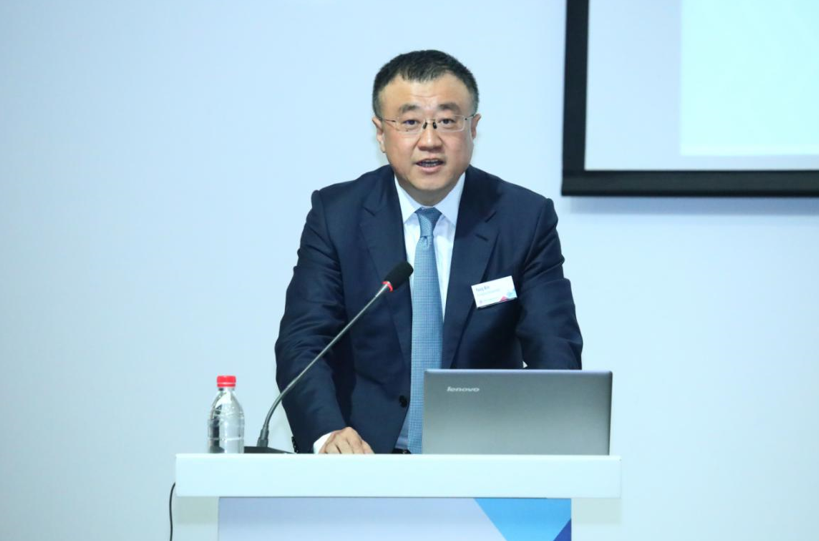
“The meeting at Tsinghua was a great occasion for Latin American and Caribbean ambassadors to get closer to academia here in China to brainstorm and to get to know better the different processes ongoing in China, and also to present LAC countries’ views,” said Uruguayan Ambassador to China Fernando Lugris in his welcome remarks.
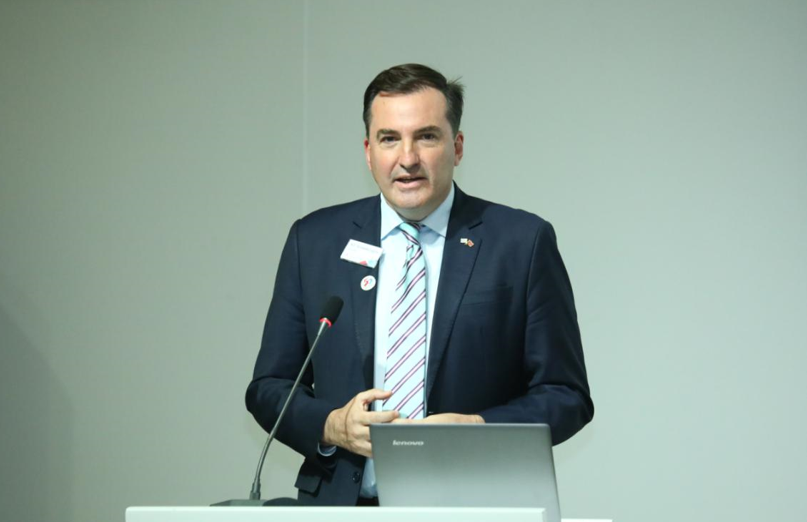
Following the welcome remarks, Prof. Bai Chong-En, Dean of the School of Economics and Management, delivered a keynote speech entitled “The Economic Aspects of the 14th Five-Year Plan — From History to Modern Society.”
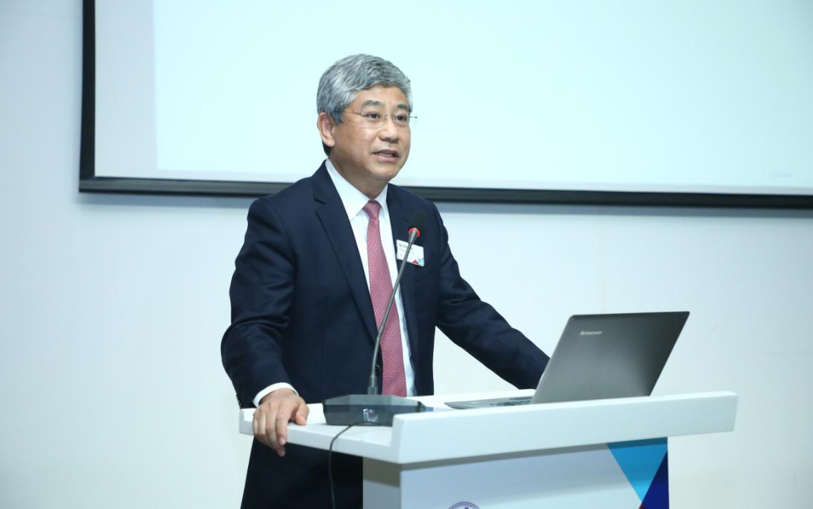
“Today’s event brings us together in the spirit of openness and shared prosperity. Through this event, Tsinghua University hopes to foster even-greater levels of understanding and cooperation,” said Li Jinliang, Dean of International Affairs at Tsinghua University.
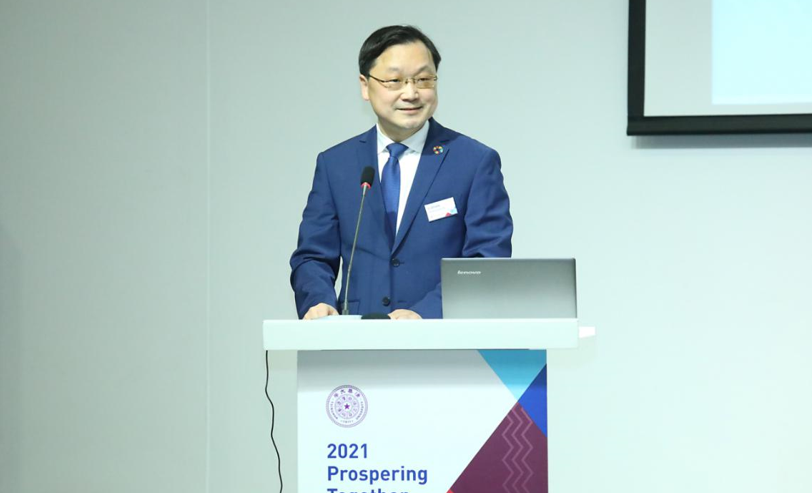
“It is not only a unique opportunity to get a deeper understanding of China, it is also a precious opportunity for the experts of China to understand Latin America and Caribbean countries,” said Chen Taotao, Director of Tsinghua University’s Latin America Center.
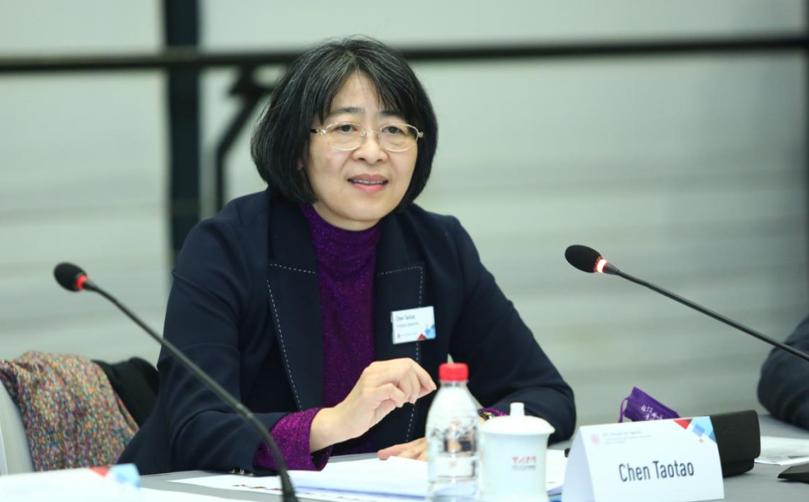
Several ambassadors and envoys spoke to student journalists in the interview. Let’s have a look at what the ambassadors said at the Convene!
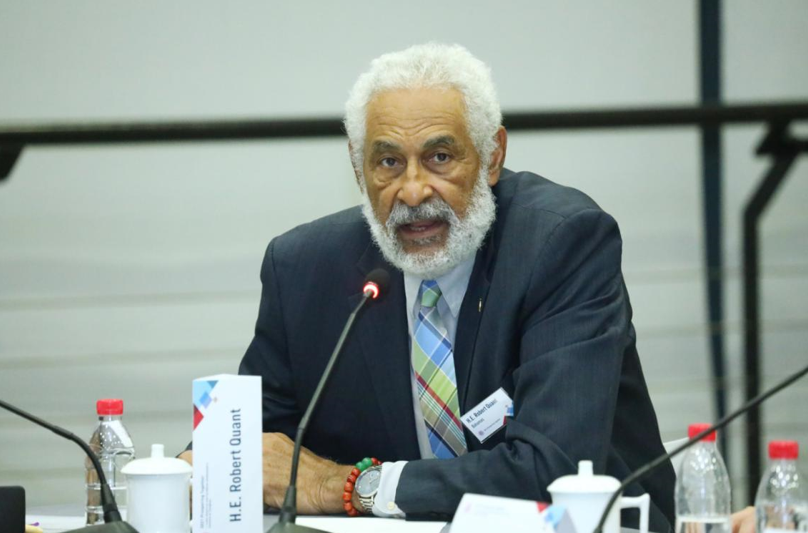
Bahamian Ambassador to China H.E. Robert Quant
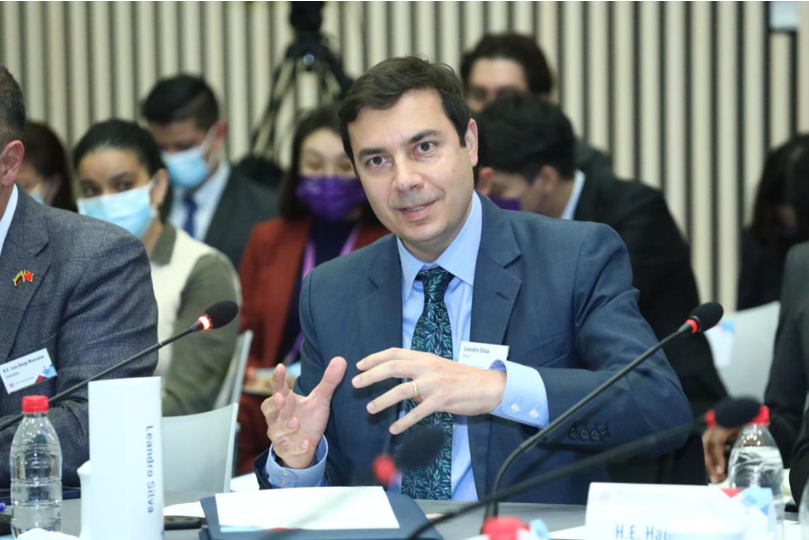
Head of Energy Section of Brazil to China Leandro Silva
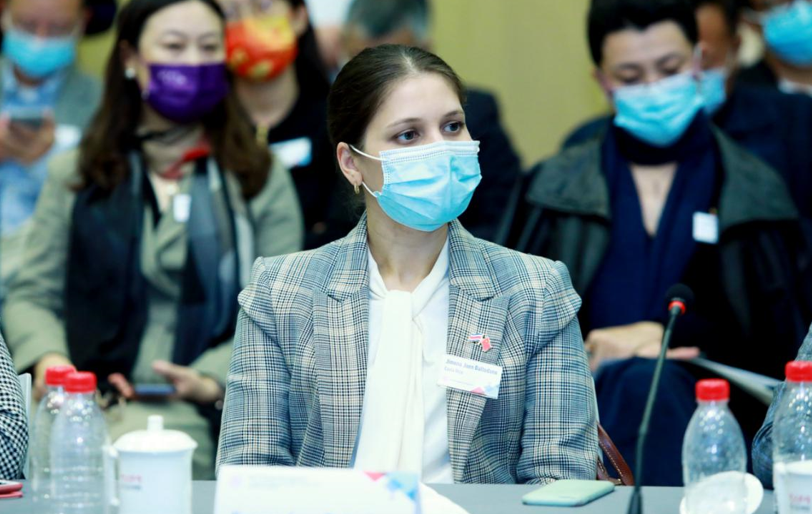
Charge d'affaires of Costa Rica to China Jimena Jaen Baltodano
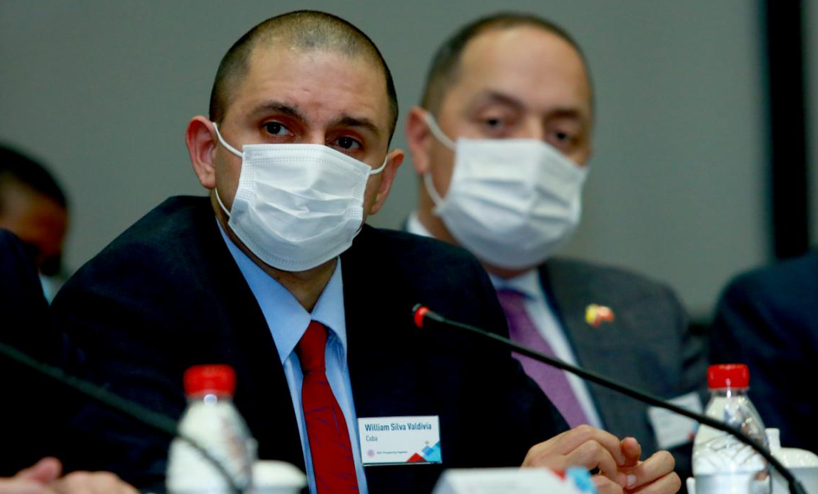
First Secretary of Cuba to China William Silva Valdivia
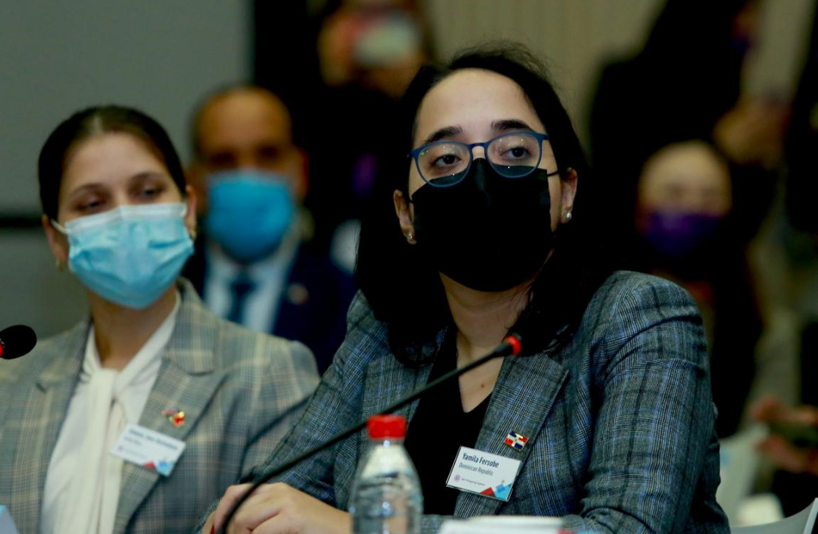
Minister Counsellor of the Dominican Republic to China Yamila Fersobe
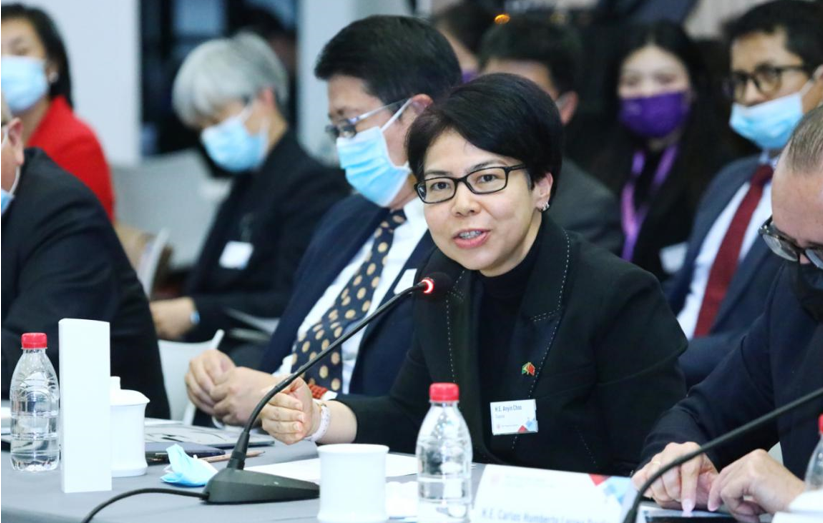
Guyana’s Ambassador to China H.E. Anyin Choo

Peruvian Ambassador to China H.E. Luis Quesada
Tsinghua Impression
Bahamian Ambassador to China H.E. Robert Quant:
It is my first time coming to Tsinghua. It reminded me of my days at university fifty years ago. I have been to several exhibitions in Beijing. I would say the art museum here in Tsinghua is top-class.
Charge d'affaires of Costa Rica to China Jimena Jaen Baltodano:
I’ve heard of Tsinghua before and today I feel it myself that Tsinghua is truly a top university. Students here are kind and friendly, with huge enthusiasm for learning. The interesting exhibition today shows ancient Chinese civilization and some of the exhibits reminded me of some similar features of Costa Rica.
First Secretary of Cuba to China William Silva Valdivia:
I used to study Chinese at Peking University from 2007-2009. This is my first time in Tsinghua, I think Tsinghua is a very famous university and many foreign students study in here. It’s a very good opportunity to communicate with students and professors in this university.
Minister Counsellor of the Dominican Republic to China Yamila Fersobe:
I am impressed by how smart and bright are the students, and the exhibition was absolutely amazing, showing China’s history and culture.
Peruvian Ambassador to China H.E. Luis Quesada:
Tsinghua is an impressive university with high academic levels. Students here are kind and friendly with proficient communication skills. Tsinghua is the top university in China and I hope more and more Peruvian students could get access to studying here.
Messages to Tsinghua Students
Bahamian Ambassador to China H.E. Robert Quant:
Learn and try to get involved as much as you can. College time will become the most treasurable memory in your life. To those students from the Bahamas, I hope you can see as much of China as possible.
Head of Energy Section of Brazil to China Leandro Silva:
I will think of what I wanted to talk with myself when I was a student. Study hard but also make friends with people from the world. It’s kind of tricky because for one side you need to specialize in your area in which you have to put a lot of efforts. For another now the world is much more collective than it used to be and it’s very important to have a broad view and an open mind.
Charge d'affaires of Costa Rica to China Jimena Jaen Baltodano:
I would like to say congratulations at first, because it is a huge accomplishment to attend this top university. And then I hope that you guys could take advantage of it, which means experience different cultures and broaden your horizons. To those students from Costa Rica studying here, I would like to say, step out of our comfort zone. As you step into this country, it will really blow your mind. Just go for it!
First Secretary of Cuba to China William Silva Valdivia:
Keep learning and writing papers. Devote your time to the acquisition of knowledge and devote yourselves to contributing to China. It can also help the world.
Three Words to Describe Your Country
Bahamian Ambassador to China H.E. Robert Quant:
Tourism, friendly, culturally-inclined. The Bahamas is located in the North Caribbean with a tourist-based economy. You can enjoy the sand and beach there and the seawater is crystal clear. People in the Bahamas are friendly and hospitable. We are fun-loving, and we enjoy life. We are also culturally inclined: we love our culture, including the cuisine, dancing, music, and so on.
Head of Energy Section of Brazil to China Leandro Silva:
Young, mixed. Brazil is a very young country compared to China. We have only five hundred years of history. We are also a mixture of different cultures. Immigrants from different cultures have made our country so diverse and vibrant.
Charge d'affaires of Costa Rica to China Jimena Jaen Baltodano:
Peaceful, green, friendly. The first one is peaceful, because we don’t have ans army, which is a very unique point. The second one would be green, as 26 percent of Costa Rica's land is protected, and also there is a rich variety of plants and Costa Rica wildlife. At last it would be friendly, because people of Costa Rica are very kind.
First Secretary of Cuba to China William Silva Valdivia:
Happy, optimistic, open-minded. Cuba is a small country in Latin America. We are a happy country—people in our country are optimistic and we really want to know more about Chinese culture and history. We have a very close relationship with China as we all know that Cuba was the first Latin American country to establish diplomatic relations with China in 1960. Since then, other countries in Latin America begun to establish diplomatic relations with China.
Minister Counsellor of Dominican Republic to China Yamila Fersobe:
Warm, vibrant, and welcoming. The Dominica Republic is the second largest country in the Caribbean region, with a population of 10.4 million. Our economy had the highest average growth in the past 20 years, mainly with the help of tourism. On the historical and cultural part, it is the oldest European settlement in the Caribbean, and the colonial city is part of the UNESCO heritage. Dominican music is also an important part of the culture.
Uruguayan Ambassador to China H.E. Fernando Lugris:
Productive, digitalized, tourism. Our capital city is Montevideo, and it is also the most distant capital city from China. But we produce high-quality beef and lamb that the Chinese have probably eaten as hotpot or other dishes. We are also in the top 10 most digitalized countries in the world, exporting software to the US and other countries, and developing the market with China. We are also promoting tourism as it is one of our main sources of income as well.
Mutual Understanding and Cultural Exchange
Head of Energy Section of Brazil to China Leandro Silva:
We are from far away countries across the world, but this should not be the excuse for the countries to not know each other better.
First Secretary of Cuba to China William Silva Valdivia:
Now we have 43 Cuban students in China and 67 students receive online class in Cuba because of the epidemic they are unable to attend classes in China. Many young Cubans are willing to come to China to study Chinese.
Guyana Ambassador to China H.E. Anyin Choo:
Different countries have different destinations, but as an English-speaking country which also has a very tiny economy and population, it is quite necessary for us to develop a deep understanding with each other and especially for a unique and peace and equality. I wish to have more young people from Guyana come to China and to have a deep insight into China, and after they return, I really hope they can serve as the bridge of friendship between China and Guyana.
Peruvian Ambassador to China H.E. Luis Quesada:
The cultural interchange between Peru and China started in the 19th century and went through a long history. Many students from Peru are learning Chinese and they are eager to study in China. I am looking forward to further development of the relationship between the two countries.
Uruguayan Ambassador to China H.E. Fernando Lugris:
I always keep in touch with the Uruguayan students, and advise them to travel around China if they can and exchange ideas with Chinese people.
Writer: Guo Wenqing
Editors: Huang Fei, Sangeet

